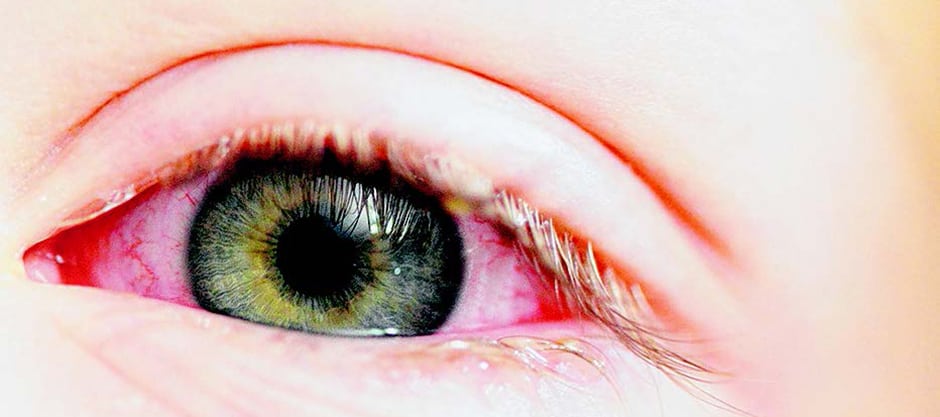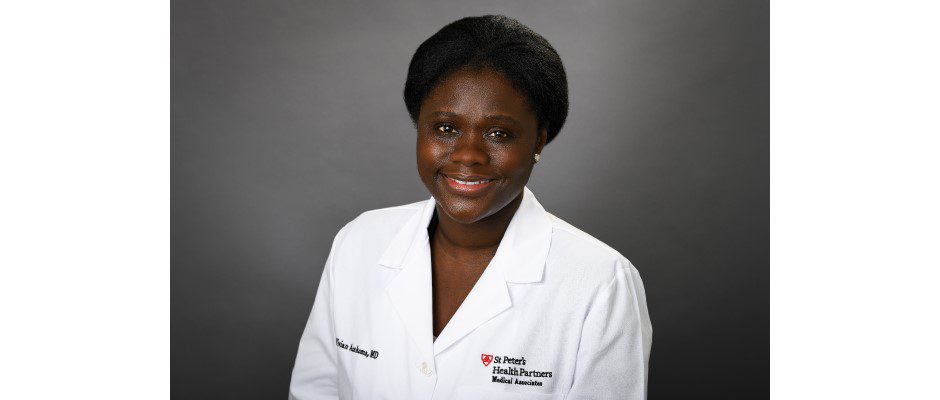
[This piece was written by Nathan Graber, MD, MPH, FAAP, with St. Peter’s Pediatrics in Clifton Park, a member of St. Peter’s Health Partners Medical Associates.]
School is back in session and, if it hasn’t happened already, notes will be coming home from school alerting you to illnesses in the classroom. With the close contact that comes with being back in school, the risk for illness like conjunctivitis, or “pink eye” is on the rise.
Conjunctivitis is inflammation and sometimes swelling of the conjunctiva, the thin, transparent layer of tissue that lines the inner surface of the eyelid and covers the white part of the eye. It’s a common infection with more than 3 million cases diagnosed in the United States every year.
Signs your child may have pink eye include:
- Pink or red discoloration to the whites of one or both eyes
- One or both eyes crusted shut in the morning
- Extensive tearing or discharge from one or both eyes
- Complaints of itchy eyes, or insisting it feels like something is in his/her eye
- Swollen eyelids
While pink eye is extremely contagious, the good news is it is easily treated and rarely causes any long-term effects.
The first step is to see your pediatrician, who can determine if it is, indeed, pink eye or another issue such as allergies or a foreign body in your child’s eye. If your pediatrician suspects that bacteria are causing the infection, antibiotic eye drops or ointment or oral antibiotics may be prescribed. Often, conjunctivitis is caused by a virus. Antibiotics don’t treat viral infections and these will get better on their own without a specific treatment.
Allergic conjunctivitis is usually treated with topical medications that contain antihistamines, anti-inflammatory medications or decongestants. Identifying and eliminating the allergen should be attempted but, sometimes, it’s hard to find the exact cause. For all kinds of conjunctivitis, cold compresses will provide some comfort.
Keep your child home until the symptoms resolve or until your pediatrician gives the greenlight to return to school. If antibiotics are started, most students can go back to school after 24 hours.
To prevent conjunctivitis from spreading, wash and dry the child’s bedding, clothes, towels, and anything else they may use on a regular basis. It is very important to remember to wash your hands before and after giving your child any eye medications they have been prescribed.
Frequent hand-washing is the best way to prevent the spread of infections like conjunctivitis, common colds and the flu. Everyone at home should remember to wash their hands with soap and water after using the bathroom, before eating and drinking, and whenever they are dirty. Here’s to a healthy and happy start of the school year!
St. Peter’s Pediatrics in Clifton Park, 1 Tallow Wood Drive on the St. Peter’s Medical Campus in Clifton Park, offers a complete range of services for children. New patients are welcome, with services including well-child routine care, sick child exams, school and camp physicals, sports physicals, immunizations, and access to other hospital services and referrals to specialists. Call 518-688-0295 for an appointment.





